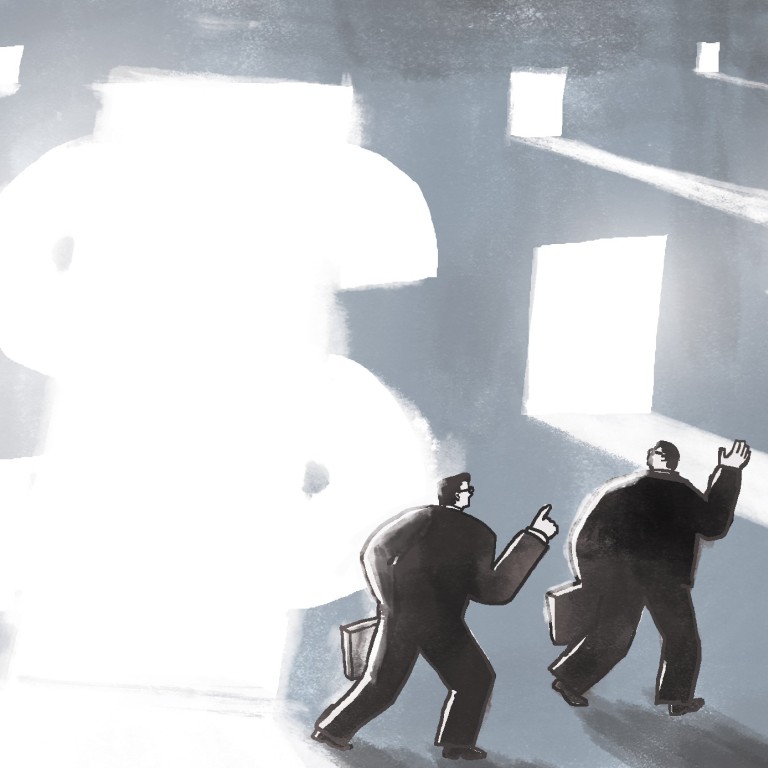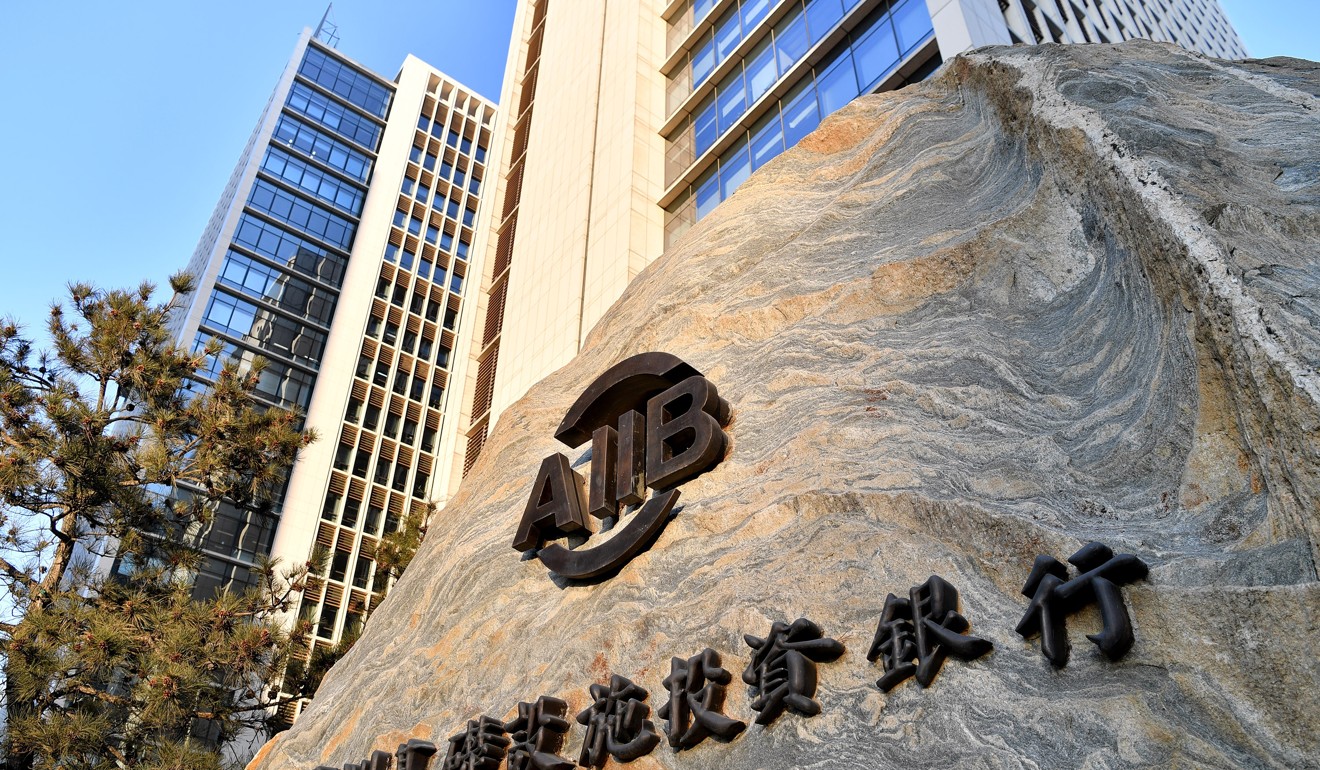
As trade war rages, China may step up efforts to create an alternative to US dollar hegemony
- Arrest of Huawei CFO underscores how the US’ dominance of financial markets gives it geopolitical clout
- China and other nations have long sought an alternative to the US dollar hegemony
As the trade war rages on and China grows more frustrated with the US dollar hegemony which gives the US such authority on the world stage, it may step up efforts to create an alternative payments system to rival the American currency, experts have said.
The US, after 70 years of promoting globalisation, open trade and defensive alliances, has turned its back on the tenets of openness in favour of a more nationalistic approach. This poses the question as to whether the world is ready for change and if the door is open for a new framework.
“If all these things are no longer seen as reliable, then you are under pressure to defend for yourself and construct some alternative framework,” said Richard Jerram, chief economist at Bank of Singapore. “President Trump is promoting an ‘American first’ policy, so you cannot rely on America to keep its borders open for trade, or to rely on it to support the [World Trade Organisation] or the United Nations and the [International Monetary Fund]. So you can understand why countries are looking for substitutes.”
“In a world of fracturing of multilateral order, countries will be looking to reduce their dependence on the US.”
HSBC and Standard Chartered Bank were among the institutions reportedly to have cooperated with investigators on suspicious transactions involving an alleged Huawei subsidiary.
The extensive and complex nature of the US financial system means international banks are subjected to US regulations on sanctioned countries when they facilitate US dollar-denominated transactions. These transactions need to be cleared by correspondent banks in the US, therefore passing through the US financial system.
Banks refuse to fund or work with sanctioned countries or companies, isolating them from dollar-dominated international markets. The complexity of global supply chains means that these companies are often unofficially banned from doing business that is unrelated to the US – other companies do not want to be found guilty by association.
The US, through its Office of Foreign Assets Control, has imposed heavy commercial and financial penalties on non-US sanctions violators.
In 2014, French bank BNP Paribas paid US$8.97 billion for violations against Iran, Sudan and Cuba. Commerzbank, a major German bank, paid almost US$260 million in 2015 to settle violations of sanctions on Iran, Sudan, Cuba and Myanmar, among others.
Neither bank was shipping goods, but rather facilitating payments through the US dollar clearing system. Other non-US banks to have fallen foul of OFAC include the Bank of Tokyo Mitsubishi (Japan), RBS (UK), HSBC (UK), Intesa Sanpaolo (Italy), ING (the Netherlands) and the National Bank of Abu Dhabi (UAE).
The punitive actions have added to a chill among international banks, which have in recent years pulled back from funding trade in countries that are perceived to be more likely to be prone to money laundering or sanctions breaches.
The US has also wielded its influence over Swift, a Belgium-based financial messaging network that connects over 10,000 banks globally. Swift is the ubiquitous software used for sending payment instructions between banks. Its data is used by the US to gain information on sanction violators, cutting sanctioned entities off from Swift and the international flow of capital as punishment.
The Iranian central bank is among those that lost their Swift connection last month after the US reimposed sanctions against Tehran.
In light of all this, discussions about alternative financial systems are gaining momentum. Some countries see themselves increasingly held hostage by the US dollar system, a sentiment that has risen as the US has become less supportive of the global order it helped build.
European Union foreign policy chief Federica Mogherini recently said that a system to facilitate non-dollar trade with Iran and circumvent US sanctions could be in place by year’s end.
Meanwhile Brazil, Russia, India, China (BRIC nations) along with South Africa have long sought to diminish their dependence on the dollar and redefine the way trade and financial transactions are conducted as a bloc.

The group established the New Development Bank in 2014, while the China-backed Asian Infrastructure Investment Bank is viewed as a rival to the World Bank, the governance of which has been dominated by the US and its allies. As yet, though, none of these institutions have made a significant dent in the trade or payments landscape.
“China has been realising that they have lost control in energy, security and trade because everything is settled in US dollars. So they do not want to settle in dollars, and want to move everything into RMB to gain control,” said Hayden Briscoe, Asia-Pacific head of fixed income at UBS Asset Management.
The dollar’s position as the world’s primary reserve currency allows the United States to run a permanent budget deficit funded by printing dollars, as central banks around the world hold US treasuries in reserve.
Many trace its supremacy to the 1970s, when the US brokered a deal to buy oil from Saudi Arabia and in return, the Saudis would plough billions of their petrodollar revenue back into US treasuries. Saudi Arabia held US$164.9 billion in US government debt as of the end of June this year. China holds more than US$1 trillion.
About 62 per cent of global central banks reserves were held in the US dollar in the second quarter of 2018, according to IMF data.
Some 43 per cent of international transactions on the global financial messaging provider Swift are in US dollars. Furthermore, Swift data shows that 98 per cent of payments sent from the US to China by volume are denominated in the US dollar.
Perhaps in a bid to reduce reliance of the US dollar financial system, China launched a home-grown cross-border payment network system for the yuan-denominated transactions in 2015.
Chinese and international banks with Chinese branches are connected to the Cross-border Interbank Payment System (CIPS), but Bank of China (Hong Kong) is the only direct participant based outside the mainland.
This latest news surrounding Huawei is likely to alert companies to be more vigilant than ever before in this regard.
Much like other dollar alternatives, however, CIPS has yet to take off. If it is to be used by foreign banks without Chinese subsidiaries for yuan payments, it will need a technical infrastructure upgrade, industry figures have said.
Fran Strajnar, CEO of Brave New Coin, a provider of cryptocurrency market research, said that de-dollarisation could be accelerated with the maturing of blockchain technology.
Despite the massive crash of Bitcoin this year, many analysts expect cryptocurrencies and tokens to gain more wide usage in the years to come. They are viewed as low cost, efficient and relatively secure, and as the infrastructure improves could become more mainstream.
In particular, Ripple is emerging as a blockchain-based rival for Swift in the field of corporate cross-border payments.
Earlier this year, China said it was open to the idea of issuing a state-backed digital currency, even as it banned cryptocurrency exchanges and initial coin offerings.
Meanwhile, Chinese authorities have accelerated the opening up of its domestic markets to allow foreign investment in yuan-denominated asset classes.
Foreign investors increased their holdings of yuan-denominated equities to around US$100 billion in September, from about US$70 billion in August and US$50 billion in July, according to data from UBS. Foreign investors bought US$400 billion in yuan-denominated bonds in September, compared to U$750 billion in August and US$200 billion in July.
Rene Buehlmann, Asia-Pacific head of UBS Asset Management, said that foreigners are attracted to Chinese assets, despite the ongoing trade war and yuan depreciation, because emerging markets are likely to accelerate their contribution to global growth.
In 2018, China was the single largest contributing country to global GDP growth, accounting for 27.2 per cent of the world’s economic growth.
Despite this, the yuan still only accounts for 1 per cent of the international payments market, and 1.8 per cent of all reserve assets held by central banks.
Until an alternative to the dollar emerges, the US will continue to dictate who can or cannot use the international financial system. If Huawei is found to have breached US sanctions on Iran, it could be left out in the cold, and those who transact with the company could incur the wrath of OFAC too.
“This latest news surrounding Huawei is likely to alert companies to be more vigilant than ever before in this regard,” said Gopul Shah, director of corporate treasury and structured trade finance, at commodity trader Golden Agri-Resources.

